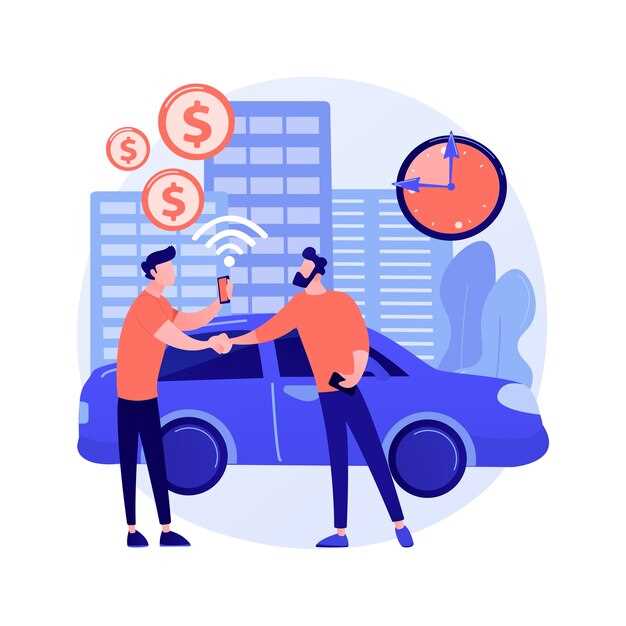
When it comes to acquiring a vehicle, two popular options stand out: leasing and financing. Each choice has its own set of advantages and potential drawbacks, making it essential for consumers to understand their unique needs and circumstances. In this guide, we will explore the key differences between leasing and financing used cars, helping you determine which option is most suitable for your lifestyle and budget.
Leasing a used car can offer several benefits, including lower monthly payments and the ability to drive a relatively newer vehicle without committing to a long-term purchase. This option is particularly appealing for those who enjoy the latest features and upgrades, as leases often last only a few years before the vehicle is returned. However, leasing usually comes with mileage restrictions and the necessity to maintain the car in good condition.
On the other hand, financing a used car allows you to build equity over time. Once your loan is paid off, you own the vehicle outright, giving you the freedom to drive it as you please without the limitations that come with a lease. Financing might involve higher monthly payments, but it presents an opportunity for long-term financial gain, especially if you choose to hold onto the car for several years. Understanding your driving habits, budget, and long-term plans is crucial in making the right choice.
Lease or Finance Used Cars: Which Option Fits You?
Choosing between leasing and financing a used car involves understanding your financial situation and vehicle needs. Financing allows you to own the car outright after the loan is paid off, giving you the freedom to drive it as long as you wish. Monthly payments are typically higher than leasing, but at the end of the financing term, you will have a valuable asset.
On the other hand, leasing a used car provides the benefit of lower monthly payments and the option to drive a newer model every few years. However, you do not own the car at the end of the lease, and there may be mileage restrictions that could incur additional fees if exceeded. This option is ideal for those who prefer driving a vehicle with the latest technology and who drive lower annual mileage.
Consider your driving habits, budget, and future plans when deciding between leasing and financing. If you prioritize ownership and longer-term value, financing is likely a better fit. Conversely, if you value lower payments and frequent vehicle upgrades, leasing could be your best option. Analyzing your personal circumstances will guide you toward the most suitable choice.
Understanding the Financial Implications of Leasing Used Cars
Leasing a used car can present a unique set of financial implications, which potential lessees should carefully consider before making a decision. One of the primary advantages of leasing is the lower monthly payment compared to financing a new or even a used car. This reduced payment can free up cash for other expenses or investments, making it an attractive option for many consumers.
However, it’s crucial to note that leasing typically comes with mileage restrictions. Most leases limit annual mileage, and exceeding this can lead to significant additional costs. A thorough understanding of your driving habits is essential to avoid these penalties. Additionally, lessees are responsible for the car’s condition and may incur charges for excessive wear and tear at the end of the lease term.
Another financial implication is the up-front costs associated with leasing. While down payments on used car leases are generally lower than those for purchases, they still exist and can impact your initial cash flow. Furthermore, leasing does not build equity in the vehicle. This means that, unlike ownership, the lessee will not have a valuable asset at the end of the lease term.
Moreover, leasing used cars can sometimes lead to higher interest rates compared to financing new vehicles. This can be a significant factor in the overall cost of the lease, effectively negating some of the initial savings associated with lower monthly payments.
In conclusion, leasing a used car may be financially advantageous for certain individuals, especially those who prefer lower payments and the flexibility to drive a vehicle without lengthy commitments. However, understanding the potential pitfalls, such as mileage caps and maintenance costs, is essential for making an informed decision.
Benefits and Drawbacks of Financing Used Cars: What to Consider

When considering whether to finance a used car, it is essential to weigh the benefits and drawbacks to determine the best option for your financial situation. Below are some key points to consider:
Benefits of Financing Used Cars
- Ownership: Financing a used car allows you to own the vehicle outright once the loan is paid off. This can be a significant advantage over leasing, where the car must be returned at the end of the lease term.
- Customization: With a financed car, you have the freedom to modify or personalize your vehicle as you wish, unlike leased cars which often come with restrictions.
- No Mileage Limits: Financing eliminates concerns about mileage limits typically imposed by leasing agreements. You can drive as much as you want without incurring extra charges.
- Potential Equity: As you pay down your loan, you build equity in the vehicle. If you decide to sell it later, you can use the proceeds towards your next car purchase.
- Financing Options: Many lenders offer competitive financing options for used cars, which may include lower interest rates than those available for leasing.
Drawbacks of Financing Used Cars
- Higher Monthly Payments: Monthly payments for financing a used car are often higher than lease payments, which can strain your monthly budget.
- Depreciation: Used cars can depreciate quickly, and you may owe more on the loan than the car’s value at times, especially if the purchase price is high.
- Repair Costs: As the vehicle ages, you may be responsible for maintenance and repair costs once the warranty expires, adding to the overall expenses of ownership.
- Long-Term Commitment: Financing typically involves a longer commitment compared to leasing, which may pose a challenge if your financial situation changes.
- Credit Impact: Financing a car requires good credit to secure favorable terms. If your credit is less than ideal, you might face higher interest rates which can increase the overall cost of the loan.
In summary, financing a used car provides the opportunity for ownership and greater control over the vehicle. However, it comes with higher initial costs and potential long-term financial commitments. Carefully assess your personal circumstances and preferences to make an informed decision between financing and leasing.
Key Factors to Evaluate When Choosing Between Leasing and Financing

When deciding between leasing and financing a used car, several key factors should guide your choice. First, consider your budget. Leasing typically requires lower monthly payments and a smaller down payment compared to financing, making it an attractive option for individuals with tight budgets. However, financing a vehicle allows you to build equity over time, which might be more beneficial in the long run.
Next, evaluate your driving habits. Leasing usually comes with mileage restrictions, often ranging from 10,000 to 15,000 miles per year. If you have a long commute or enjoy road trips, financing might be the better choice, as it allows for unlimited mileage without penalties.
Another important factor is vehicle ownership. When you finance a car, you own it outright once the loan is paid off, giving you the freedom to modify or sell the vehicle as you wish. Conversely, leasing means you will need to return the car at the end of the lease term, which may not suit everyone who prefers long-term ownership.
Maintenance costs also come into play. Leased vehicles are often newer and typically remain under warranty, resulting in lower maintenance expenses. In contrast, older financed cars might incur higher repair costs as they age, impacting your overall budget.
Lastly, consider your lifestyle and preferences. If you prefer driving a new model every few years with the latest features, leasing may be appealing. However, if you appreciate the idea of owning a car that you can drive for years without worrying about the contractual obligations of a lease, financing could be your best option.



